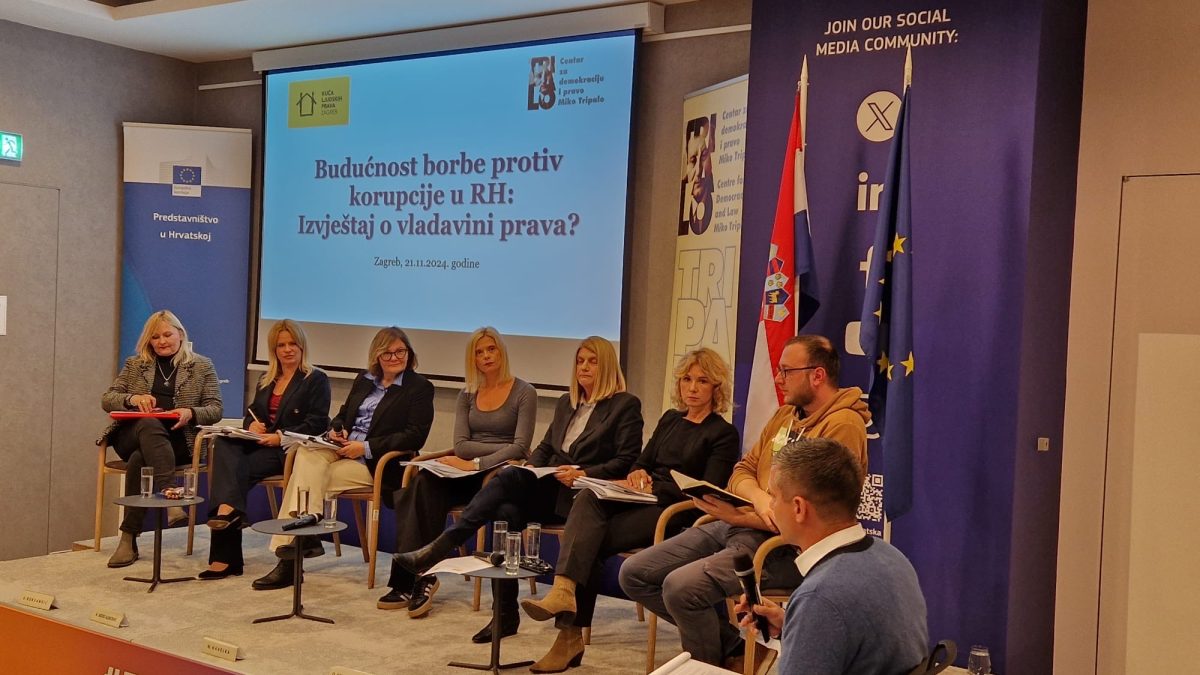Deputy Ombudswoman Dijana Kesonja participated in the event “The Future of the Fight Against Corruption in Croatia: Rule of Law Report?”, organized by the Centre for Democracy and Law Miko Tripalo and the Human Rights House, held on 21 November 2024 at the House of Europe.
At the beginning of the event, the results of a survey on young people’s attitudes toward corruption, conducted by the Miko Tripalo Centre, were presented, along with the 2024 Rule of Law Report. The findings revealed that nearly 9 out of 10 young people believe that corruption is widespread in Croatia, with politics (86%) and the judiciary (62%) identified as the sectors most affected.
During the panel discussion that followed, participants reflected on the survey results and the recommendations of the European Commission’s Rule of Law Report. They also discussed opportunities for enhancing and strengthening anti-corruption initiatives in Croatia. The engagement of young people was highlighted as crucial in combating corruption, and more than two-thirds of respondents stated that education on combating discrimination should be incorporated into school curricula and made a mandatory subject at the university level.
During the discussion, Deputy Kesonja emphasized the importance of protecting whistleblowers in the fight against corruption and the role of the Ombudswoman as the body responsible for external reporting under the Whistleblower Protection Act. She underlined the need for education on the rights and obligations set out in this Act—both for whistleblowers, as their ability to exercise the rights provided by the law may depend on their awareness, and for confidential persons, who apply the law in cases of internal reporting, as well as all other stakeholders to whom the Act applies. Although the 2022 Act introduced a number of improvements aimed at ensuring better protection of whistleblowers, the Deputy also pointed to the potential for more effective protection—both through legislative solutions and through proper implementation. Finally, Deputy Kesonja stressed the importance of perceiving whistleblowers as individuals acting in the public interest, rather than their own, which is why they must be provided with appropriate and timely support in protecting their rights, which may be endangered or violated due to their decision to report wrongdoing.
In addition to Deputy Kesonja, the panel featured Nataša Đurović from the Office for the Suppression of Corruption and Organised Crime, Natalija Havelka from the Centre for Peace, Nonviolence and Human Rights Osijek, Oriana Ivković Novokmet from Gong, Aleksandra Jozić-Ileković from the Commission for the Resolution of Conflicts of Interest, Josip Miličević from the Croatian Youth Network, and Sunčana Roksandić from the Faculty of Law, University of Zagreb.


